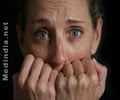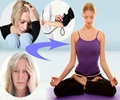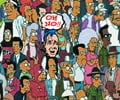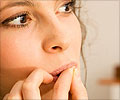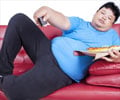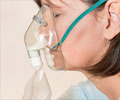Treatment for Anxiety Attack
Anxiety or panic attacks, even panic disorders, are very much treatable if you seek medical care sooner than later. Through treatment you can expect to have less frequent and less intense episodes. However, complete recovery, though possible involves long term treatment.
Treatment for anxiety attack can be via following methods:
Cognitive Behavioral Therapy
Cognitive behavioral therapy or CBT is a method of treatment where you explore the connection between thoughts, feelings, and behaviors. It involves the following three steps.
1. Psychoeducation- This helps you understand why you behave the way you do in certain situations and that there are different strategies to overcome it. For example, you will learn that although a panic attack is an uncomfortable experience, it’s temporary and not dangerous.
2. Relaxation strategies- The next step in the therapy is learning how to relax the body by consciously slowing down the breath through a method called Calm Breathing and through progressive muscle relaxation. Meditation, yoga, and massage are other relaxation techniques. Even soothing music is good for relaxing you.

3. Realistic thinking- The last step involves recognizing and replacing thoughts that cause panic and decrease the sense of helplessness. First you pay attention to your thoughts. Then you identify the thoughts that make you feel bad and need to be challenged. Lastly, you evaluate the negative thought that needs to be challenged and you come up with an alternative thought that is more realistic and balanced.
Exposure Therapy
Exposure therapy is a process of facing your fears. Some therapists believe this to be an extension of the CBT where you learn to effectively manage your anxiety. In this therapy, you are repeatedly and in a slow and steady manner exposed to feared situations and sensations, starting with the least fearful. The exposure is supported by a set of control-based coping skills that aim to help you overcome your fears. You learn to ‘wait out’ the anxiety and it lessens over time. This is known as Graded Therapy.
The second part of the exposure therapy is the Interoceptive Therapy where you learn that the physical symptoms you experience during your panic attack are tolerable and is not a life threatening medical problem. For example, you may be asked to simulate your anxiety attack symptoms by hyperventilating, shaking or choking. These exercises are then controlled; say, if you are asked to hyperventilate then the control will involve slow breathing until the symptoms settle. The exercises are increased in intensity gradually. Eventually, you react less and less to the symptoms and improve your tolerance to these physical symptoms.
Medication
Medication is an important part of the therapy and is most effective when used along with CBT and other cognitive therapies. Medications commonly used are –
- Selective serotonin reuptake inhibitors (SSRIs) such as paroxetine (Paxil), fluoxetine (Prozac), sertraline (Zoloft), citalopram (Celexa) and escitalopram (Lexapro). These anti-depressants have to be used for 2 to 3 months in order to achieve their full effect.
- FDA approved serotonin norepinephrine reuptake inhibitor (SNRI), venlafaxine (Effexor), is effective when taken for 2 to 3 months.
- Benzodiazapines such as lorazepam (Ativan), clonazepam (Klonopin) and alprazolam (Xanax). Though highly effective in the short-term, these are usually not indicated for the long-term treatment of panic disorder.
- Sedatives can also be used but for a short time since you can become dependent on these medicines.
- Beta-blockers such as Propranolol (Inderal) are used to control some of the physical symptoms of anxiety, such as trembling and sweating. Beta-blockers generally are not recommended for people with asthma or diabetes because they may worsen symptoms.
- Anti-seizure medicines are sometimes used in severe cases.

Balanced diet, aerobic exercise, and avoiding caffeine and alcohol play a very important role in decreasing the symptoms of anxiety / panic attacks. Support from family and friends are also a vital part in combating these attacks.

Overcome anxiety attacks. Get your life back!


